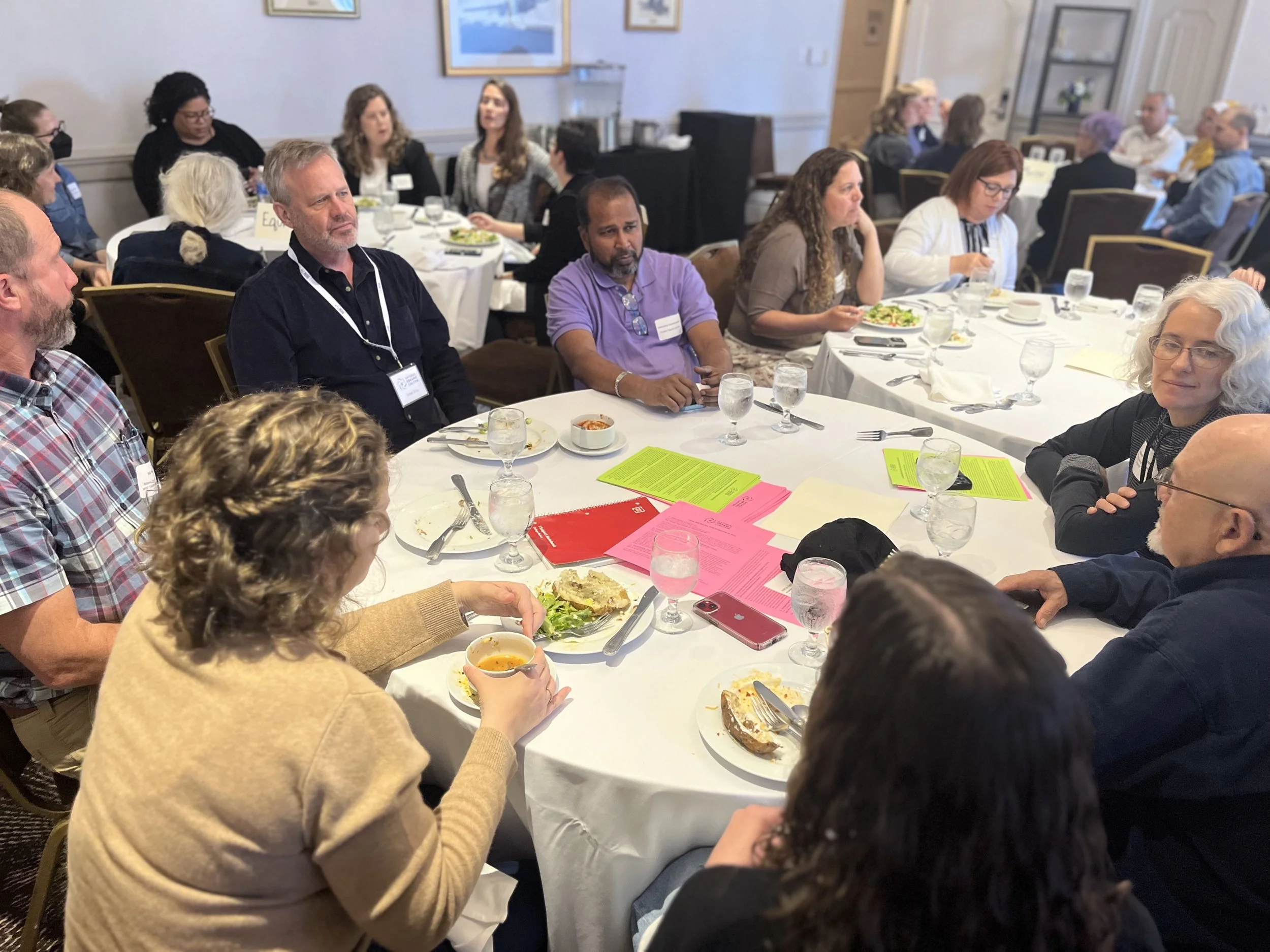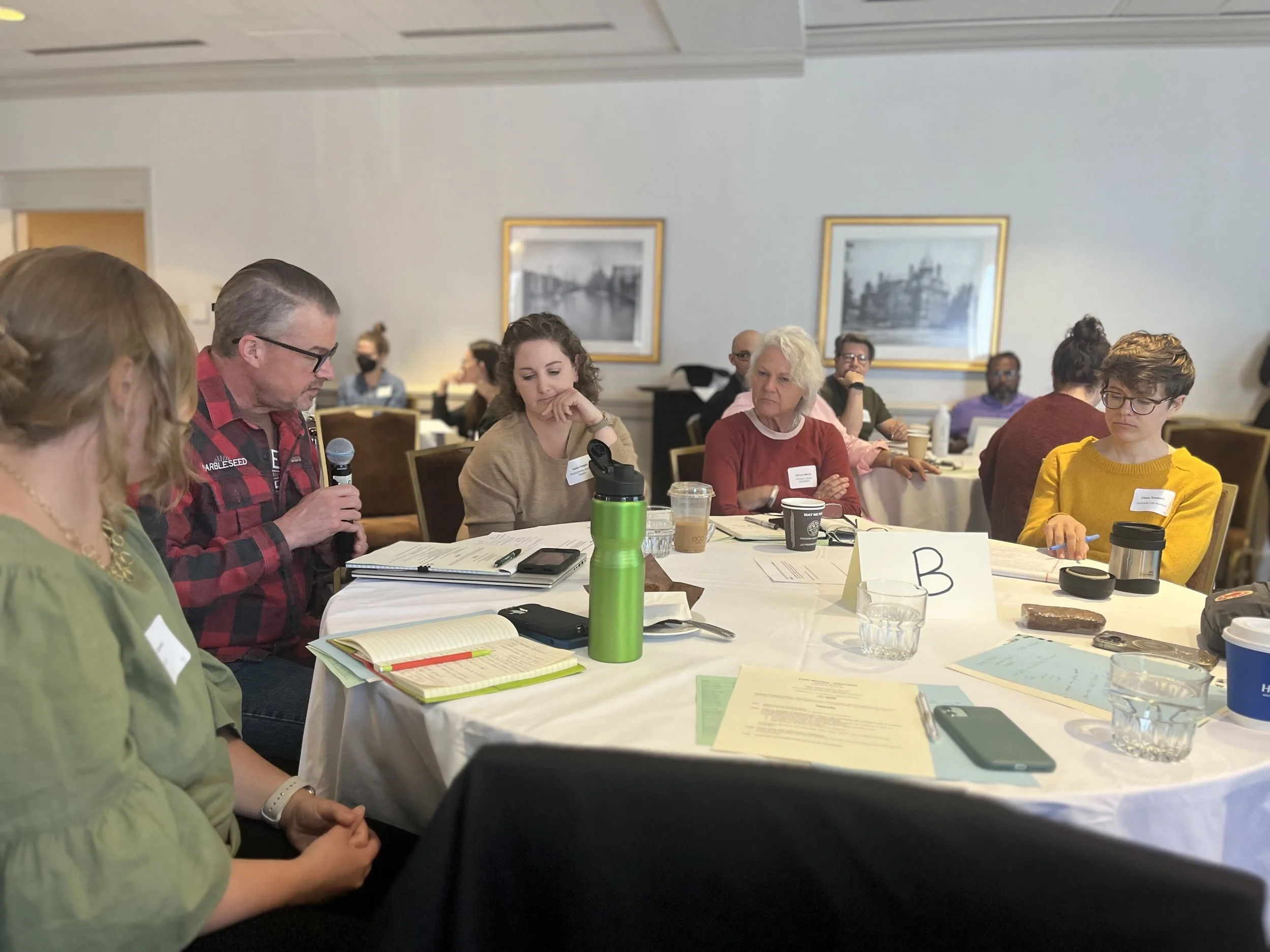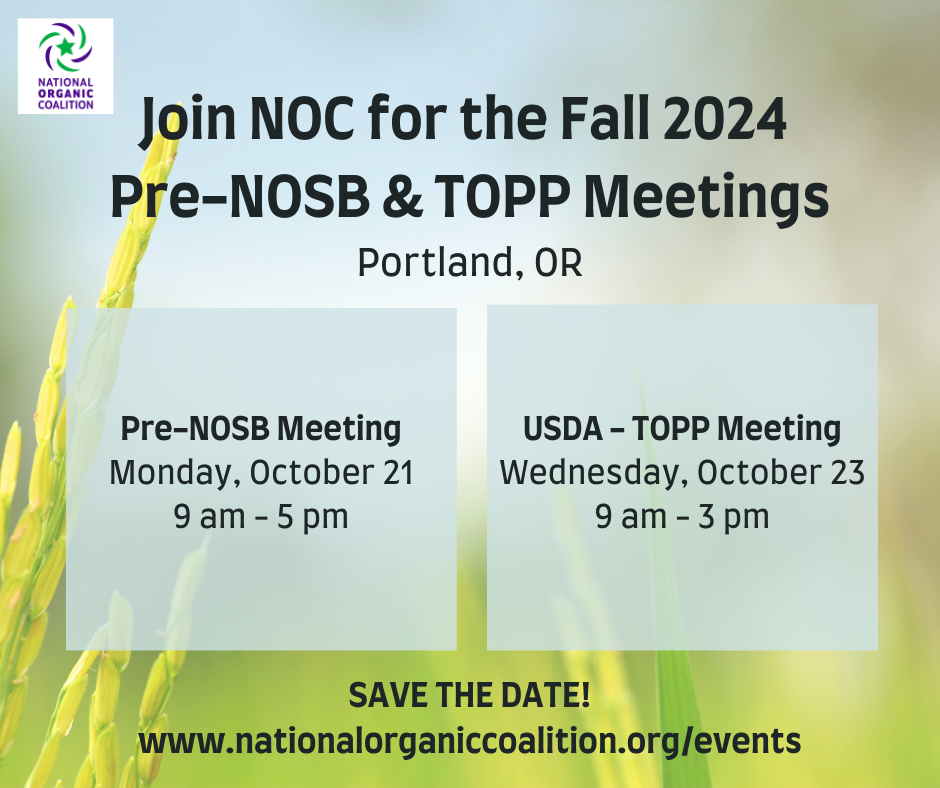National TOPP Meetings
For more than 20 years, the National Organic Coalition (NOC) has been convening organic community meetings, to provide a forum for productive engagement around critical issues for diverse members of the organic community.
NOC is leveraging our role as a convener to facilitate national Transition to Organic Partnership (TOPP) meetings twice each for relationship-building and information exchange among TOPP organizations. TOPP is part of the USDA Organic Transition Initiative and is administered by the National Organic Program (NOP) at USDA.
Organic organizations from across the country met in Milwaukee, WI on April 30, 2024, to discuss TOPP successes and work on challenges.
In April, NOC convened the third national, in-person TOPP gathering in Milwaukee, WI, in conjunction with the Spring 2024 National Organic Standards Board meeting. This gathering focused on connecting TOPP partners across the country, addressing challenges in the organic workforce, and discussing the impact of the TOPP program. Leads and representatives from all six TOPP regions, national partners, and the National Organic Program (NOP), gathered for the meeting. Below are some key takeaways. Find a more detailed meeting summary & highlights here, and an article in Summer 2024 Issue of Marbleseed’s Organic Broadcaster here.
The lack of diversity in the organic workforce is a barrier to organic certification. Though there is no data on certifier staff demographics, certification agencies report that most certifiers and inspectors are white. To address this challenge, organizations are leveraging TOPP to communicate and collaborate across organizations and regions, to share best practices and strategies for equitable recruiting, hiring, onboarding, and retaining of staff. Some of the strategies include fostering relationships with Historically Black Colleges and Universities (HBCU)s, Tribal Colleges, Hispanic-Serving and Asian American and Native American Pacific Islander-serving institutions, thinking creatively about the skills and capabilities (rather than experience) needed in new hires, and adding an equity lens to recruitment and hiring practices. Organic organizations are also investing in long-term, authentic relationship-building with organizations serving historically underserved farmers, some of which may not have traditionally been involved in organic certification.
There are additional barriers to organic certification in underserved areas. Some parts of the country are underserved in terms of organic education, extension, certification, and inspection services and as a result, there are additional real and perceived barriers in these regions to organic transition. One strategy to start addressing this challenge, is for organizations to partner with local institutions (high schools, community colleges and universities). The organic community also needs to ensure these career paths are sustainable and offer living wages.
The shortage in organic inspectors could curb organic development. Organic inspectors are a crucial part of the organic ecosystem, however, there is a documented high turnover and limited retention for organic inspectors. We need to invest in strategies to retain inspectors while attracting new ones. Some strategies revolve around the inspector roles and their support, while also making organic inspector careers attractive and accessible.
Transition to Organic Partnership Program goals do not capture the entire impact of the program. The primary purpose of the program is to increase the number of certified organic acres and farms. There are important limitations to focusing on these goals alone. For some historically underserved communities, there is a lack of trust with USDA given the history and legacy of discrimination USDA itself has acknowledged. The idea of the National Organic Program, embedded in USDA, directly or indirectly scrutinizing everything on a farming operation may not be appealing to BIPOC farmers. Having USDA Organic Certification as a goal may inherently exclude BIPOC farmers from accessing the program.
Another limitation to this goal reflects the time it takes to transition to organic. It takes at least three years for an operation to transition into organic, but TOPP is currently only funded for five years.
The TOPP program has impact beyond the number of certified organic acres and operations. Even if a grower chooses not to certify as organic, they may be changing some of their practices as a result of participating in TOPP. Capturing those behavior changes at the national scale would demonstrate the full impact of the program.
Beyond organic practices, TOPP is growing “organic champions”, building leadership and advocacy skills through community development, supporting network and partnership between farmers, organic service providers, and organic organizations. TOPP is also contributing to new organic expertise. Organic groups are partnering with organizations and institutions that may not have had organic resources to build organic expertise and be able to provide services for organic and organic-curious farmers. TOPP is having a positive impact on ecological health by supporting more farmers to use agro-ecological farming practices.
Another impact that NOC is excited about is better informed advocacy. As a result of TOPP, advocacy organizations will have a better understanding of best practices to encourage organic transition, where the gaps and opportunities are, and how to support this effort long term.
Through TOPP, the organic community is building partnerships and collaboration that make our movement stronger.
In the past 18 months, TOPP has allowed organic organizations to come together and collaborate under a common goal: supporting organic transition. This incredible federal investment in organic agriculture is a huge opportunity that organic partners have taken advantage of to expand or develop organic programming and resources. We look forward to seeing what impact the next four years of TOPP will have, on the number of organic operations, acres, but also on the landscape of organizations supporting organic farmers.
Is your organization involved in TOPP work? Join us in Portland, OR, October 23!
NOC is hosting an in-person meeting for organizations involved in USDA’s Transition to Organic Partnership Program (TOPP) on Wednesday, October 23! Learn more & register here.




